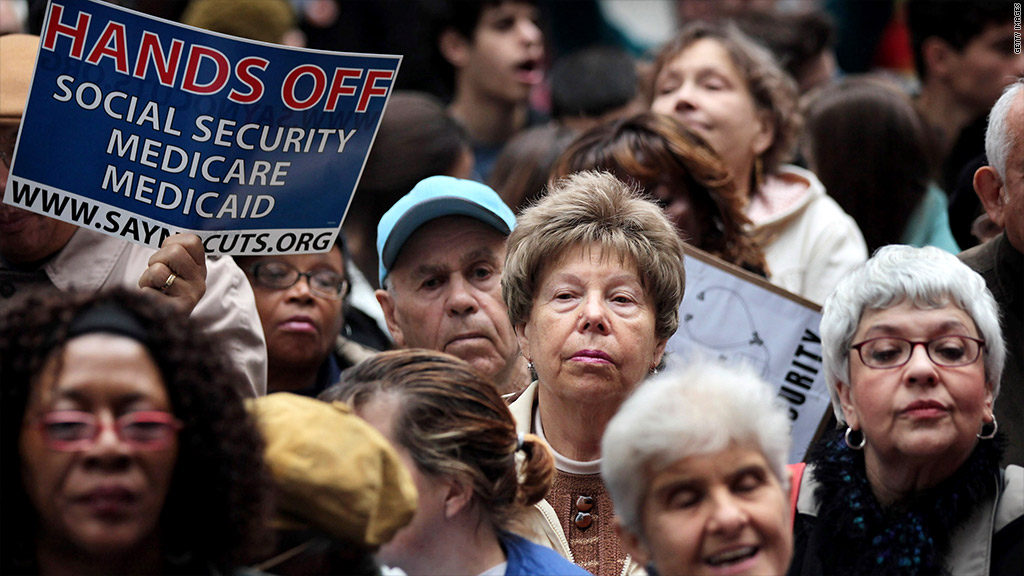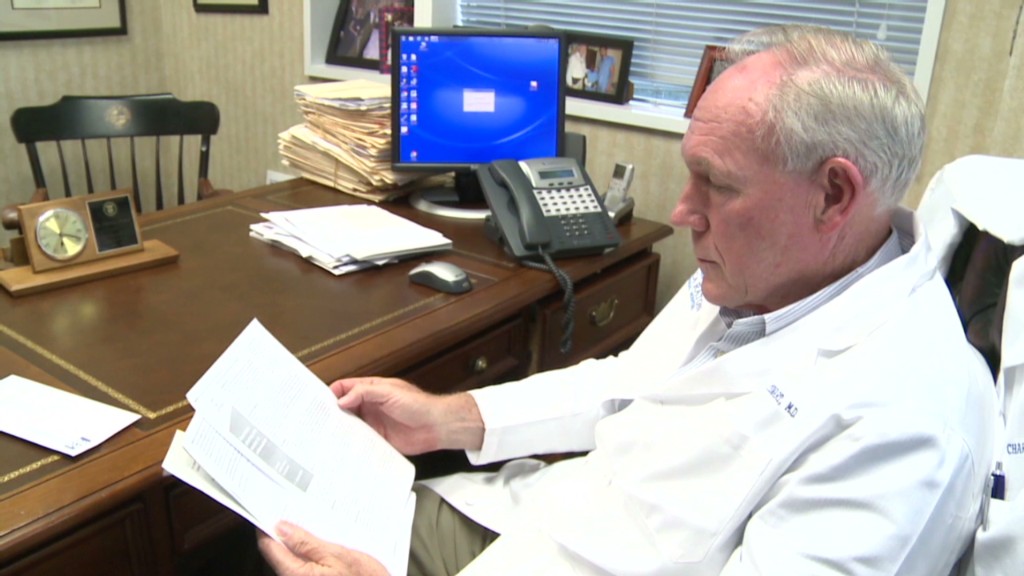
Raising the Medicare eligibility age would save money for the federal government ... but it would raise health care costs for nearly everyone else.
If seniors were not allowed to enroll in Medicare until 67 starting next year, federal spending would drop by $5.7 billion in 2014, according to the Kaiser Family Foundation. But Americans enrolled both in private health insurance plans and Medicare, as well as employers and states, would see expenses jump by $11.4 billion.
"Raising the age doesn't address the larger concern of reducing health care spending overall," said Juliette Cubanski, associate director of Kaiser's Program on Medicare Policy. "It just shifts costs from the federal government to other payers in the system."
Medicare reform is back in the spotlight as the White House and Congress gear up for another deficit reduction battle in coming weeks. President Obama has said he'd be willing to make modest changes to Medicare as part of the debt ceiling negotiations, while House Republicans are looking to overhaul the troubled entitlement programs.
Raising the eligibility age to 67, which would once again align Medicare with the full retirement age in the Social Security program, has been kicked around for years. Advocates say that the program should reflect the increased lifespan that Americans now enjoy, as well as the fact that there are fewer workers to support retirees.
"The real reason to do this is to recognize that demographics have changed and financing has changed," said Robert Moffitt, senior fellow at the Heritage Foundation, a conservative group that advocates raising the eligibility age to 68. "We should encourage those who can keep working to keep working."
Related: Debt ceiling FAQs: What you need to know
One of the major concerns raised had been that many 65- and 66-year-olds would be left in the cold, without employer-based coverage or affordable individual insurance. That worry, however, has been blunted somewhat by the Affordable Care Act, which would provide insurance in government exchanges and subsidies for those of moderate income. Poor adults could be covered by an expanded Medicaid program, though not every state will opt to widen its program.
About 435,000 of these youngest seniors would be at risk of becoming uninsured, out of the roughly 5.5 million in that age group, according to estimates by the Center for American Progress, a left-leaning group.
But many of those who remain covered will likely pay more than they would had they transitioned to Medicare. Two-thirds of adults would pay more out of pocket in premiums and cost-sharing, to the tune of $3.7 billion in 2014, according to Kaiser.
There would also be a ripple effect. Employers will pay $4.5 billion more because they would have more of these older workers on their insurance rolls. And premiums in government exchanges would rise by $141 per person to accommodate the additional people in the pool. States would pay $700 million more to cover those eligible for Medicaid.
Even Medicare recipients would see higher annual premiums -- $46 on average -- because raising the age would remove comparatively healthy participants.

"It increases Medicare costs because it takes out the youngest patients and puts them into a group where they are the oldest and sickest," said Maura Calsyn, associate director of health policy for the Center for American Progress.
Heritage's Moffitt agrees that lowering health care costs overall is important and supports doing so by broader Medicare reforms along the lines of what Vice Presidential Candidate Paul Ryan suggested. But it's unlikely, he says, that that will happen in the next few weeks. So Congress should enact smaller reforms that will benefit the economy by keeping more workers on the job.
"I want those people in the workforce, not on an entitlement program," he said.


